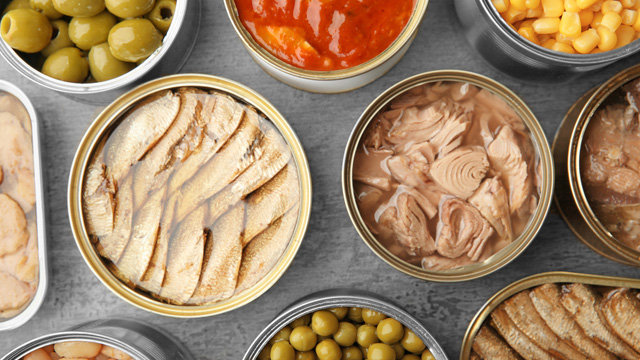-
Are you confused about food that have “best before” or “expiry” dates? Do you throw out food that have expiry dates beyond today?
You’re not alone. Many people believe that these dates mean that the food is no longer edible and should be thrown out. According to revised regulations that govern the labeling of packaged food the Department of Health (DOH) (Administrative Order No. 2014-0030), expiry dates are defined as a date when the food will no longer have the quality you expect. This is also the date after which the packaged food is no longer deemed marketable.
This is what you need to know about expiry dates and “best before” dates:
Expiry dates are about the nutritional content of the food. Best before dates are about the quality of the food.
Both refer to food that has been unopened and still intact in its original packaging. According to the Canadian Institute of Food Safety, an expiry date refers to the nutritional content of the food beyond a certain date. The best before date is basically the life period of the food in its packaged state, unopened.
In the Philippines, “Best before” dates are also known by these terms:
- “Use By” dates
- “Consume Before” dates
However, according to the Food Standards Agency in the UK, “best before” dates refer to the quality of the food while “use by” dates are about food safety. That’s because “use by” dates are usually on food that are highly perishable. This should be more strictly followed as food beyond its “use by” date may be unsafe to consume even if it still looks and smells fine.
ADVERTISEMENT – CONTINUE READING BELOWIn the simplest terms, the “best before” or “expiry” date is the “recommended last consumption date” because the quality of the food beyond this date may have already changed. This also means that this is the estimated maximum time that this food should be stored and beyond this date, it is not recommended that food should be consumed for quality and food safety reasons.
 Photo by Shutterstock
Photo by ShutterstockSo, can you still eat food beyond these dates?
These dates do not mean that the food has gone bad and is no longer edible. The food, while still edible, may no longer be as nutritious, as flavorful, or deliver on the promise that it claims to have beyond these dates compared to food that was eaten prior to this date. Food, after all, does degrade over time, and these recommended maximum time periods of storage will ensure that the food are still acceptable according to the laws that govern the packaging of food.
CONTINUE READING BELOWRecommended VideosHowever, for food safety reasons, it’s best to consume packaged food before these dates.
For the safest choice, here are a few tips when shopping:
1 Examine the packaging well before adding it to your cart.
Check that any packaged food are still unopened, and bags and boxes are without rips and tears. Give each can you pick up a thorough look and feel all around the can for those telltale dents, rust, or any other outward sign of being otherwise contaminated.
Cans that are swollen, dented, or corroded should be avoided. These may not be safe to eat even though the food may look safe to eat. That’s because dents, in particular, may have punctured the air-tight seal that safely preserved the canned food inside and allow microscopic bacteria on the can to enter and contaminate it when it was dented.
2 Check expiration and best before dates.
Pick packaged food that have manufacturing dates closest to the present and expiration and before dates as far into the future as possible. These are at their freshest and will last the longest in storage if not consuming right away. While these dates are estimates, you should also note that packaged food whose packaging has been tampered with or otherwise opened will lessen how long it will stay safe and preserved.
3 Wash before opening.
You may also want to wash the can or the packaging before opening. It might look clean but even before you open the can, washing the can is good practice. Why? The cans may have been on the shelves for days, weeks, or even months before you picked it up. Before that, the box it was in or the can itself was probably stored in warehouses. Before that, it had to have been transported. Basically, we don’t know where that can has been, and if you’re trying to stay safe, wash or at least rinse your cans especially before opening.
ADVERTISEMENT – CONTINUE READING BELOWThis story originally appeared on Yummy.ph.
*Minor edits have been made by the SmartParenting.com.ph editors.
Best Before And Expiry Dates: Know The Difference
admin
June 07, 2021
Tags:
You may like these posts
Popular Posts
Kumakati Ang Balat Dahil Sa Buni? Alamin Ang Mga Pagkaing Dapat Iwasan
February 25, 2022
Jennica Garcia Dismisses Rumors That She’s Back Together With Alwyn Uytingco
September 20, 2021
Sunshine Cruz’s Quarantine Hobby Is Crocheting! ‘My Stress Reliever’
November 28, 2021
Random Posts
3/random/post-list
Recent in Sports
3/recent/post-list
Popular Posts
Kumakati Ang Balat Dahil Sa Buni? Alamin Ang Mga Pagkaing Dapat Iwasan
February 25, 2022
Jennica Garcia Dismisses Rumors That She’s Back Together With Alwyn Uytingco
September 20, 2021
Sunshine Cruz’s Quarantine Hobby Is Crocheting! ‘My Stress Reliever’
November 28, 2021
Menu Footer Widget
Crafted with by TemplatesYard | Distributed By Free Blogger Templates
0 Comments